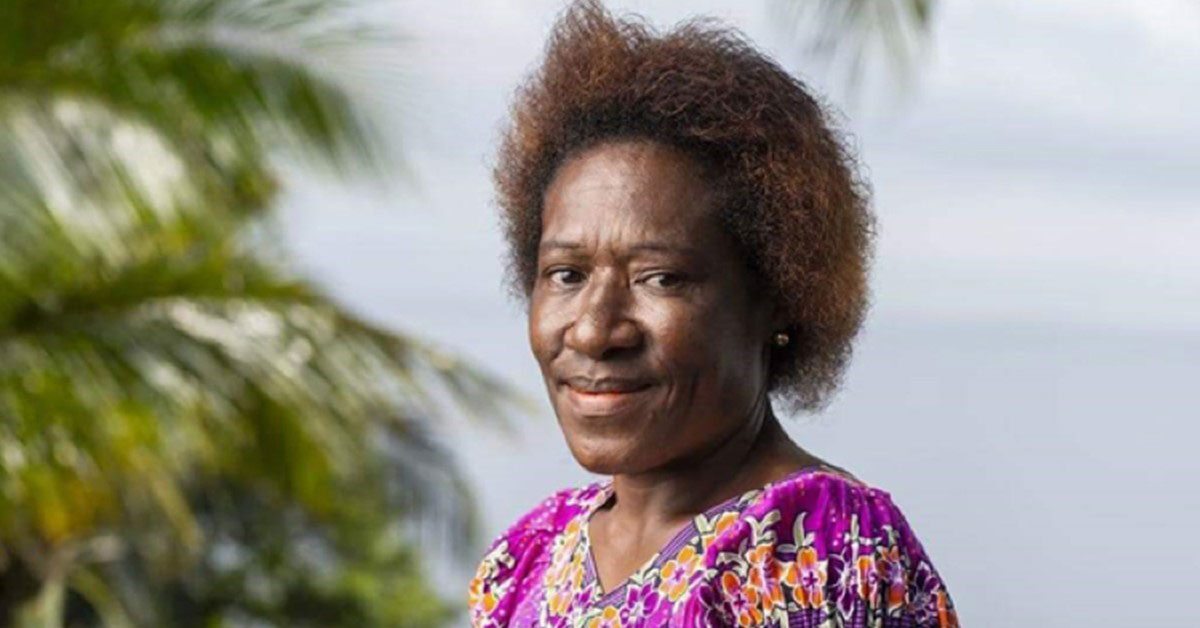In Papua New Guinea, it is common for women to be underrepresented in community decision making processes. A recent baseline study conducted by WaterAid in PNG’s East Sepik Province found that only 10% (and in some areas as low as 2%) of the people who influence decisions at a community level are women. Yet the role women play in day-to-day life in PNG communities is central. They hold the knowledge and experience to contribute to community planning and decision making for more effective and sustainable outcomes for their community.
Ms Winnie Sagiu is a Water Leader.
Supported by the Australian Government’s Water for Women Fund, Winnie was engaged by our partners, WaterAid and has been deeply involved in many aspects of their water, sanitation and hygiene (WASH) project, Inclusive WASH for Wewak. Winnie’s impressive list of involvement in this project includes: co-chairing the District WASH Coordination Body quarterly meetings; coordinating fieldwork for the district WASH baseline; and co-facilitating the rollout of the Healthy behaviour change program.
Winnie is a shining example of the value of women’s contribution to WASH delivery and beyond. Her leadership and community engagement skills, knowledge on WASH and government systems, and her confidence and passion for her work has made her a reliable and valuable member of the team and a great leader. Winnie sets an important example to others in the organisation and the communities in which she works.
“I want to encourage women and children because they benefit the most [from WASH]… if women see other women taking the lead then they will have the courage to speak. If they don’t see other women stepping forward, then they feel hesitant. This is especially true for women in rural communities.
This International Women’s Day is about forging a path to gender equality: an equal world is an enabled world.
Collectively, Australia’s water programs have the power to create transformative change in communities and the countries we work in by prioritising gender equality and social inclusion, as well as ‘Do No Harm’ principles in our programs. Actively involving all people within communities ensures more equitable and inclusive processes, which leads to more effective and sustainable outcomes in WASH.
Working with government and local partners allows us to strengthen systems to support this approach. Recognising the barriers and constraints faced by women in PNG, WaterAid’s project has taken a systems strengthening approach to develop an inclusive and empowering WASH sector by working closely with and building female leadership within the sector.
“I want to help people to live a healthier lifestyle. I grew up in a community faced with so many hardships. Basic government services must benefit the people,” says Winnie. If this is what just one woman can achieve, imagine what is possible in a gender equal world.
More stories:
Read an another great story here http://bit.ly/3an2IID on how the Australian Government’s Australian Water Partnership Program is helping to build the next generation of female water leaders in the Indo-Pacific.

